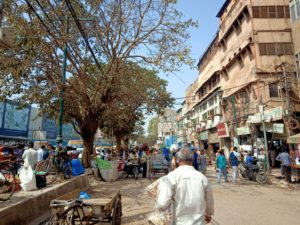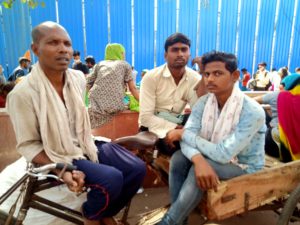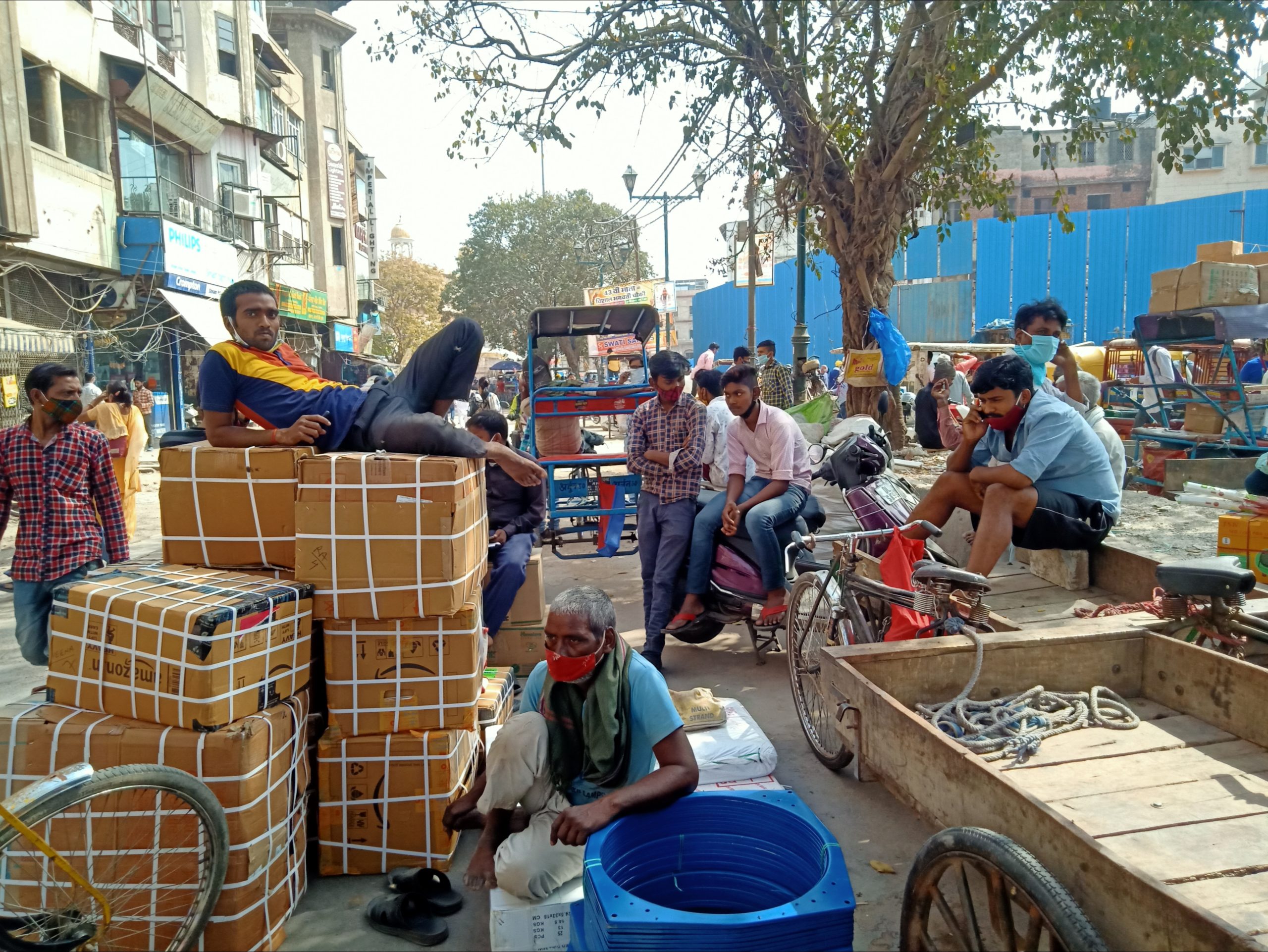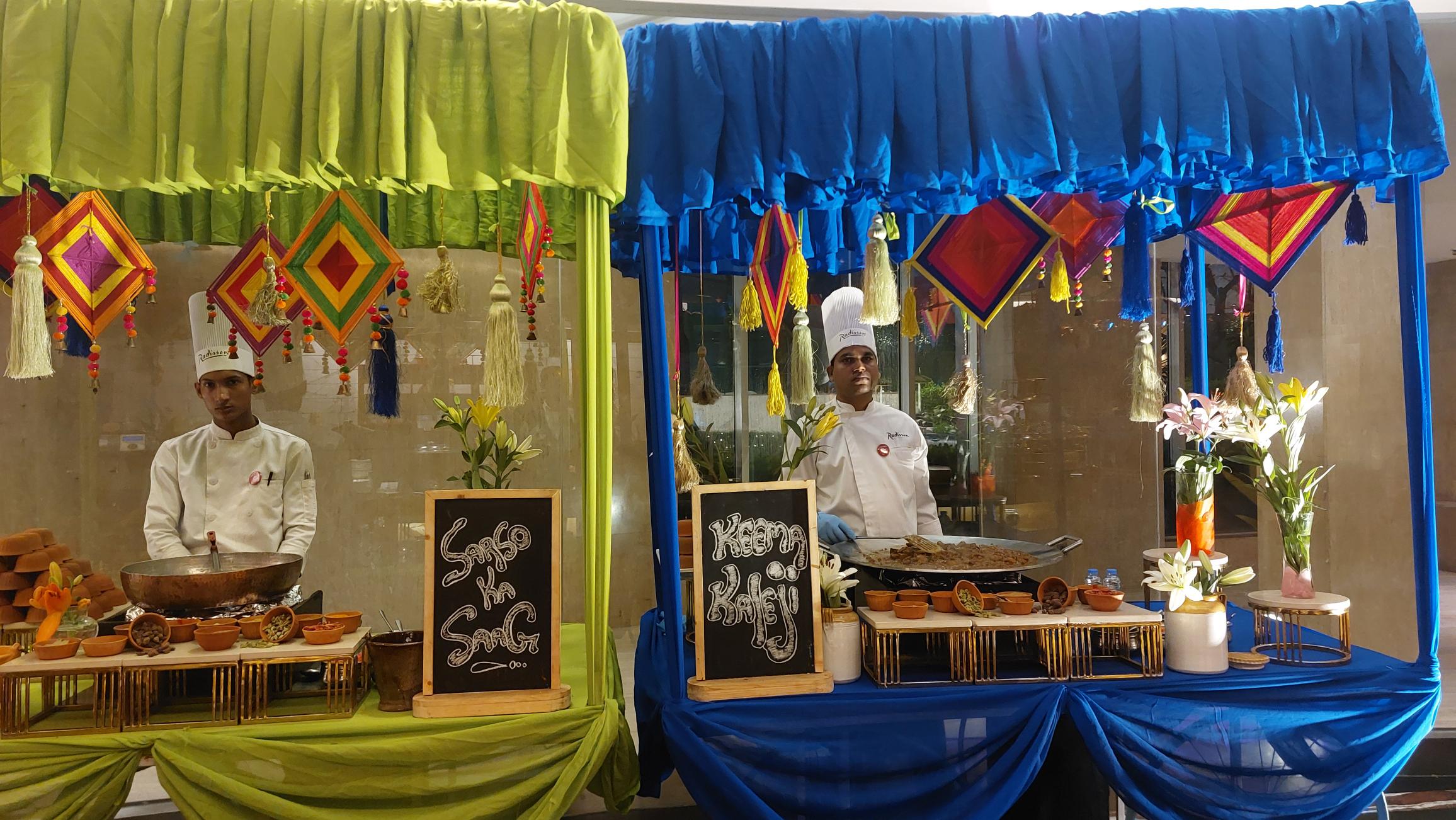With increasing Covid cases in the capital city, as well as in other states, labourers are yet again facing the horrors of last year. Will lack of means to survive force them to go back to their hometown, again?
It’s an usual Saturday afternoon of March in the capital city. Pradeep, Mukesh and Raju are sitting on a porter cart in the Sadar Bazar area of Chandini Chowk hoping to get some work. Till 2 PM they didn’t get any and were planning to wrap things off. That’s how their day went by, and there’s no hope that they would get any work the day after as well.
They know each other very well as they all belong to Madhepura district of Bihar, and are working in Delhi for a common contractor. The advent of March this year reminded them of the horrors of last year, when lack of means to survive forced them to go back to their hometown.
Now again, lockdowns in a few districts of Madhya Pradesh and Maharashtra, the anticipation of a second wave of Covid, and rising number of cases in Delhi are making them apprehensive about the possibility of another lockdown.
They all live in a rented room in Jamna Bazar area. “Six of us live in a room; all we need is a room for sleeping, otherwise all day we stay outside for work,” said Mukesh. They all left Delhi when the pandemic was reaching its peak, in April 2020, covering some distance on foot, taking lifts on trucks, but no means of livelihood at their home forced them to come back in August.
“When we returned to Delhi in August, our landlord took rent for April, May, June, July even when we weren’t staying here for all those months,” Mukesh added. From August, they started to get some work, and with the coming of January some traces of normalcy were visible.

“We were getting Rs 250- 300 by January, although before lockdown we could sometimes earn Rs 400 a day, but we were expecting this as things are becoming a bit normal. Though everything wasn’t fine earlier as well, but the situation was not as bad as it is now,” said Pradeep.
Delhi, being a capital city depends a lot on the situation in other cities for work, as a lot of merchants and traders come to Delhi and hire these labourers and porters. With cases increasing in various states like Maharashtra, Madhya Pradesh and lockdowns being announced, the work that these labourers get are affected.
“If one merchant doesn’t come to Delhi, at least 100 labourers wouldn’t get work because labour depends on these merchants coming here to buy goods. If they don’t come, who will hire porters? Who will hire loaders?” said Ramnivas Dhanka, a labour contractor from Rajasthan. “A merchant is now thinking about himself. If he buys goods, whether he would be able to sell it or not. Those merchants who are coming, even they are apprehensive about buying. Because if another lockdown is imposed, his money would go waste.”

Dhanka further added, “The situation is worst for labourers, to say the least. Those labourers earning Rs 300 -350 a day are not even getting Rs 100 since the last 15-20 days, as merchants are not willing to come to Delhi.”
There are 12 labourers who work under Dhanka. All have come back to Delhi and are struggling to pay rents. “I personally know a lot of labourers, who are out of work and forced to open a stall to sell socks, sleepers on the streets by selling out all their savings because they don’t have anything else to do,” said Dhanka.
“Till last year, we weren’t so concerned about how we would survive. Now it has become an important thing. We were sending our kids to school. Now everything has changed,” said Hargyan Pal, a labourer from Madhya Pradesh. He also added that, “our work involves a lot of physical activity and working while wearing these masks make it tougher for us. But we can’t take them off here.”
On March 23 last year, Prime Minister Narendra Modi announced the nationwide lockdown for 21 days, to contain the spread of Coronavirus. It resulted in a big humanitarian crisis, when migrant labourers in cities decided to go back home due lack of means to survive. Over 1.14 crore inter-State migrant workers returned to their homes during the lockdown as per Union Labour and Employment Ministry data.
A year has passed, but the conditions of migrant labourers haven’t changed much, labourers are still getting less wages than they used to get before lockdown. A study by the Centre for Equity Studies last year said that only 5.5% of labourers that they spoke to were earning a monthly amount of Rs 15,000 before lockdown. The modal monthly income was between Rs 5000 to Rs 10,000.
“Women (compared to men), Dalits, Muslims (in 7 comparisons with other social groups) earned less pre-lockdown. 46.8% of women earned less than 5000 in the pre-Covid period (compared to 14.8% of men).” the report said. If we compare it to what labourers told us, it seems that labourers aren’t getting even lesser than the model monthly income — between 5,000- 10,000.
A survey by Azim Premji University found that due to stringent lockdown 80 % people lost their jobs, 74 % reduced their food intake, 5 out of 10 had no cash to buy even week’s essentials.
Policy interventions to help migrant labourers have also so far failed. Patriot reported in December that the well publicised doorstep delivery initiative by Aam Aadmi Party was able to register only 200 out of 2,000 requests in Delhi.
An official told the reporter that 47,000 construction workers received Rs 10,000 (each) in government benefits. “Many of them are those who got themselves registered in the camps that were set up by the Delhi government from August 24 – November 11 where more than 20,000 workers had registered themselves.”
However, we spoke with as many as 30 labourers at Sadar Bazar area of Chandini Chowk, but none that we spoke had heard about any such registry and didn’t get any monetary help.
Policy for Migrant labours
On March 18, a group of hawkers, sex workers, domestic workers, rescued bonded labourers and other unorganised workers gathered at Jantar Mantar to demand migrant worker policy. They said in their press release that the Government must notify the draft migrant labour policy prepared by NITI Ayog urgently to start building the confidence that informal workers are citizens of this country and their rights won’t be discriminated any longer.
Kusum of All india Network of Sex workers also raised an important issue of invisible workforce like sex workers. She demanded at least a one time income support of Rs 10,000 for all unorganised workers who are largely invisible in the labour market.
As per 2011 census, India has 45.6 crore migrants, that is 38 percent of total population. And also the Inter-State Migrant Workmen Act, 1979, is in place requiring all establishments who hired inter-state migrants to be registered, as well as all contractors who recruited these workers to be licensed.

However, it doesn’t address the issues of independent migrant labourers and until now not much was in place for migrant labourers.
The Niti Aayog brought a Draft National Migration Policy to address such lacunae in February. It suggested measures like facilitating inter- state migration, more coordination and increasing minimum wages. More importantly, it also talked about the central database of migrant labourers. And for “effective utilisation to protect migrants,” Aayog suggested that this act should be amended.
While speaking to us labourers compare themselves with farmers. “Farmers have land, they can get loans, what about those who don’t have land? We can’t even protest, otherwise how will we eat?” laments Raju. Ramnivas further added, “at least the government should give some kind of labour card, so that labourers can be approached for work.”
(Cover: Labourers and porters in Chandni Chowk wait in the market with the hope of getting work /Photos: Mayank Jain)





